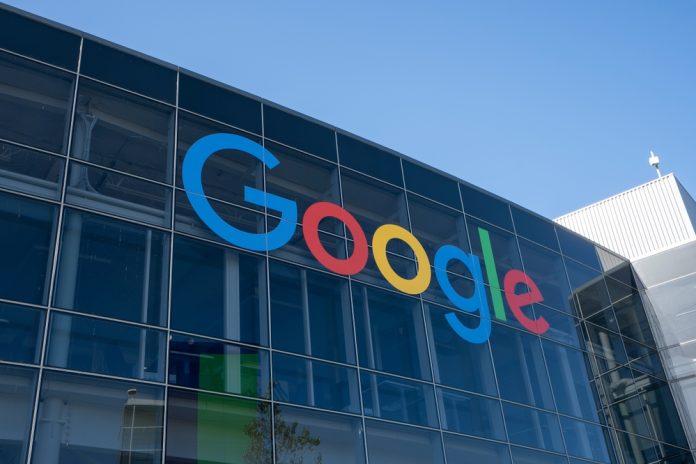Google’s Search Generative Experience has caused a real stir in SEO circles recently. Affiliate Leaders taps into the expertise of Deirdre Savage, Head of SEO at Time2Play Media, to understand how affiliates navigate this threat.
AI and tick-box freelancer content will have the same results going forward, creating minimal visibility for brands.
Generative AI has taken the world by storm in the past 12 months. From gaining insights and constructing articulate text through Chat-GPT to crafting imaginative characters and landscapes with Midjourney, the tech has cemented its influence on an array of daily practices within most, if not all, industries.
Although tech firms have been finding ways to utilise AI for decades, Generative AI’s recent leap into the mainstream has presented firms like Apple, Microsoft and Amazon with the challenge of not-only utilising AI tech themselves, but enhancing the consumer experience with unique innovations that showcase its true power.
In one development that has shaken up the affiliate marketing scene, with a particular impact on the SEO community, Google launched its Search Generative Experience tool earlier this year.
The tool aims to streamline the searcher’s experience, using Generative AI to present formulated answers at the top of the search engine results page and summarise key takeaways from any articles presented.
While this may seem beneficial for the searcher, there are concerns that placing an AI-generated prompt at the top of every search will reduce the need to click-through links and visit individual pages.
Detailing the gravitas of the concern within affiliate businesses, Affiliate Leaders spoke with Dierdre Savage, Head of SEO at Time2Play Media, to question how the industry has responded to such a huge change.
When asked whether Google’s AI Overview has caused worry within the affiliate space, Savage simply responded “of course,” due to “anything coming in on top of the SERP” being a concern.
Savage explained that SEO companies are feeling hard-done-by due to their content being used to educate and inform AI Overview results without reward, whereas if another company were to do the same, it would certainly lead to a dispute.
“The main concern I’m hearing from the SEO community is that our content is now being used to train AI that is not passing the benefit onto the business that created it,” she said. “If it was another website, we’d likely submit a takedown request.”
However, Savage also referred to an AI Overview “pushback” from users, stating that Google is failing to consider “what the users want”. The Head of SEO believes Google to have been “in panic mode” when developing AI Overview.
She remarked: “The pushback from general users is worth noting. It seems like Google is in panic mode trying to get into the AI space when they were already present in it with the likes of Featured Snippets.
“They are not looking at what the users want, which is what they tell us to do all the time. I envision it being present longer term, but the real estate it takes up may not be as significant as they had initially proposed.”
“I think there is a rush to implement AI elements into everything because it is the new shiny thing. We can see Google is even struggling with the implementation into its search product.”
Even if Google’s AI Overview remains largely unused, affiliate marketers cannot rely on the tool’s downfall and now face the pressure of finding ways to optimise adverts and content to tackle diminishing results caused by AI Overview.
“There are a number of tactics which can be used to protect against AI Overview,” said Savage. “Mainly, we need to find the USP for our brands, utilise experts and create better, more in-depth content than users can find using AI Overview.
Despite Generative AI’s influence on affiliate marketing in the past year, with a growing number of companies continuing to produce content via the technology, Savage believes this content may fall victim to AI Overview the most.
Savage stated: “AI and tick-box freelancer content will have the same results going forward, creating minimal visibility for brands. Focus needs to shift back to quality content and expert authors. The safest strategy is to be present at every stage of the funnel.”
In fact, Savage explained that this could present some benefit to affiliate marketers and SEO workers, increasing the need for content to provide “quality and depth” in order to find its place on any AI Overview prompts.
Savage said: “The reputation of the industry may improve with AI Overview and recent algorithm changes in general. The quality and depth of content we need to produce is higher to maintain position. So we’ll see better products, providing content for the user on SERPs.”
Looking at the overarching impact of AI, Savage echoes a similar sentiment to Brett Archer, Director of Games at Bally’s, who expressed his concerns over the fact that “everyone is looking into AI.”
“It’s going to be easier for AI to understand existing games and mechanics and potentially the maths behind it as well,” he said. “The concern for me is that we are going to be seeing more games that are the same and or very similar that have been created with AI.”
Savage too questioned whether the increasing uptake in AI needs to be more regimented, stating: “When used as a tool, it can greatly improve efficiency when used for formatting tech tickets or summarising articles, for example. When using it for creation in any way, we need to be mindful of the regressive nature of how it learns and validates any output.
“It cannot replace a human with critical thinking – yet – but it can save some time and give alternative insights.”












